Book Reviews by Genre: Dystopian
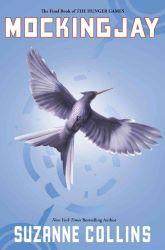
Mockingjay is the third book to the Hunger Games trilogy. Katniss finds herself stuck in between a rebellion and the future of Panem. It is discovered that Katniss was rescued by District 13, which is an underground district that joined the rebellion against the capitol. Katniss is fighting for her loved ones yet again, and against the capitol directly. She is chosen as the symbol for the rebellion, but she doesn’t know if that is what she wants.
This book wasn’t my favorite out of all three, but I recommend reading it because it is still a good book. Definitely read the other two books before this one, so you can understand what is going on. Mockingjay is one of the more emotional books from this trilogy, but it still keeps you on edge like the other two.
Reviewer Grade: 8th
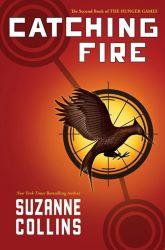
Catching Fire is the second book in the Hunger Games trilogy. After Katniss and Peeta return home from the games, they both go on the victor tour to all the districts. Before they left President Snows visits Katniss and says she still needs to be in love with Peeta so there won’t be an uprising in the districts. After that, the Quarter Quell (the 75th Hunger Games) comes along and everything changes. Katniss needs to fight for the ones she loves, and to stay alive. If you’re interested about reading Catching Fire make sure you read the first book of the trilogy, The Hunger Games. This book has a lot of good twists and turns, and kept me wanting to flip to the page to see what happens next. It was an emotional book, which keeps you on the edge. If you liked the first book I recommend reading the second!
Reviewer Grade: 8th
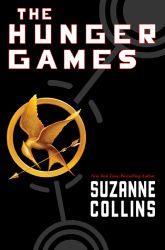
The Hunger Games follows a girl named Katniss Everdeen. She lives in a world where there is 12 districts, which are controlled by the capitol. This nation is called Panem. A very long time ago, the districts rebelled against the capitol, so the capitol created the Hungry Games. The Hunger Games is a game played each year, and one boy and girl from each district is sent to fight to the death. When Katniss’ younger sister Prim is chosen as the tribute for district 12, Katniss couldn’t let her sister go, so she volunteered to go in for her as the female tribute for district 12. Katniss and the male tribute of district 12, Peeta Mellark, are sent to the capitol to train for the games.
This was an amazing book that I recommend to everyone including new readers like myself. I’m not a big reader, but this book really had me stuck to the pages. I was up all night and couldn’t stop thinking about what is going to happen next! The Hunger Games is definitely one of my favorite books!
Reviewer Grade: 8
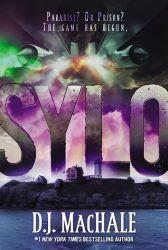
This is the first book of an awesome Apocalyptic trilogy. This book starts out with a high school football player named Tucker Pierce, who lives a quiet life on Pemberwick Island,Maine. He is also perfectly fine being the backup for a kid named Marty on the team. As a game goes on, Marty seems to be having the best game of his life, when he scores a touchdown and just drops dead. The narrator describes the whole story in past tense, and describes that as "the first death". This is the start of a "real page turner" of a story. As that week goes on, Tucker and his friends (Quinn and Tori) find out that a U.S. military branch invades his island.This story goes on to describe how The trio find out what the heck is going on, and in three books! It is a very good book, and I strongly recommend it. Just don't read it if you do not have access to the other books, because you have to read the whole series.
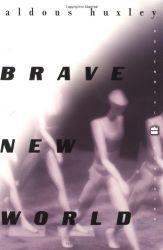
Brave New World presents a uniquely disturbing dystopia- but unfortunately, that is where its strengths end. The plot, aside from the setting, is so loosely strung together that a main character, main storyline, or even main theme is unclear. The story meanders from one under-developed character to the next and, without the support of a vivid setting, the novel would crumble. I admire the creativity behind the premise and the craft behind the writing style, but the plot simply lacks. The novel is only worth reading to delve into the vivid world that Aldous Huxley created.
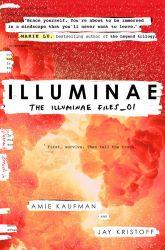
This book was interesting. It takes place in 2575 so way in the future and includes a planet invasion and a plague. It was also written in the transcripts of files and emails, so even though it was a long book it was a quick read. It was slow at the beginning and a little hard to get into because of the different way of writing it, but it eventually got good. I was interested for a while, but then it just got confusing again. I also did not enjoy the main character or the way she acted, her character development just stopped making sense. I’m not sure if I would recommend this book, I think if you want a legit sci-fi novel you should read this, but be prepared to focus try to transcript emails and codes.
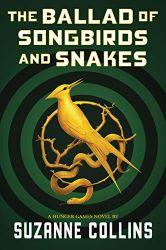
The Ballad of Songbirds and Snakes is a prequel story taking place before the events of the hunger games, and is about president Snow before he becomes president. This book was interesting because it shows Snow as a mentor to a tribute from district 12 during the tenth annual hunger games. You also hear a lot about Snow’s internal monologue which can get a little creepy because some of his actions actually make sense despite them being twisted. The book was a lot longer than any of the original hunger games books so it was a little slow which made it boring at times, but it was interesting to see Snow slowly morph into the twisted and feared villain he is later. The love story in the book was also strange because Snow would be the last person you would think of to show compassion and even Suzanne Collins can confirm this throughout his internal monologue. Overall, I think this is a great book to read if you enjoyed the hunger games series and there is a movie adaptation coming out this November which was one of my reasons for reading it.
Reviewer Grade: 8
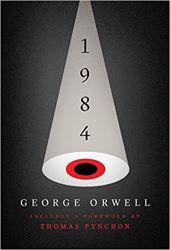
Although George Orwell crafted a rather interesting dystopia, the story he built around it largely fell flat. It was apparent throughout the novel that Orwell was more of an essayist than a storyteller; he was more interested in explaining the structure of his setting to his audience rather than showing them how that structure affects the story. 1984 suffers from hundreds of pages of blunt exposition-dumping that disconnects the reader from the characters and plot. While there is significant payoff at the end, the rising action was rather lacking in weight as the main character spends more time describing the logistics of the 1984 world rather than where he fits in it. Some aspects of Orwell's famous dystopian are intriguing, like the use of Newspeak or the new family dynamics, though it is overall disappointing.
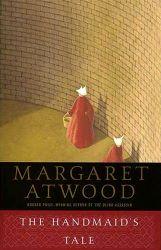
Warning: this book contains depictions of rape and violence. If either of these are sensitive topics for you, I would reccomend finding a different book.
"The Handmaid's Tale" is a story about a country that rises after the fall of America. In it, traditional gender roles are enforced by the government. Women are forced into the role of Wives, Marthas (women who clean the house), Aunts (women who are in charge of other women), and Handmaids (women who have sex with men to give them children). Offred has been taken from her husband and child, put into reducation, and forced to be a Handmaid for a commander. She makes her way through the new world while trying to keep fragments of her sanity, individuality, and happiness.
The descriptions in this book are incredible, almost poetic. The charcters in this book are all well defined, and feel like real people. Offred was a standout to me. Though she is the hero in the book, there's an inherent selfishness in her character. She has an affair with a married man. She decides not to help the resistance. She constantly mocks a woman who has been raped. Oftentimes stories will try to make a dystopia seem worse by making their protagonists innocent and pure. By making Offred so flawed, it draws attention to the fact that this treatment is unacceptable no matter who it's being done to.
The worldbuilding of Gilead is haunting. Margret Atwood has said that everything she put in "The Handmaid's Tale" has happened in history somewhere. That's probably part of why this book feels so real. Though it might seem unbelievable that a society could collapse and revert to such archaic values, looking into real life societal collapses makes it seem much more feasible.
I could talk about this book for far longer, but that would be unwise. In summary, "The Handmaid's Tale" is a wonderful, if not unsettling, read. I would reccomend it to fans of speculative fiction, anyone interested in learning about gender equality, and anyone who can handle a thought provoking read. As I said in the beginning though, this book can be upsetting at parts, so judge for yourself if you can handle that.
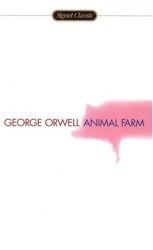
Animal Farm is a book where animals on a farm represent the Russian Revolution. The animals rebel against the farmers to try and escape cruelty and be free. But, it doesn't end up going as planned, and things start to go wrong on the farm. I thought that this book was very educational and it was interesting to see how people, who were represented by the animals, can change so fast. I would recommend this book to anyone who has an interest in history and the Russian Revolution.
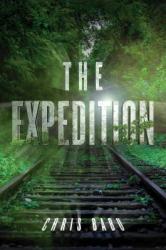
The second book in the Initiation series, we get to see more of the world. As the characters move farther out, they see that the leaders of New America have lied about the state of the world. As the protagonists go on through their journey, they start to uncover more and more secrets that New America has decided to bury. Though they are not left alone on their quest as New America has left them with four highly trained soldiers, supposedly to defend them from any danger. Tensions continue to grow between the Guardians and Draydens group, and both sides start to grapple for control, eventually splitting off. Both sides become contenders to finish the pursuit for supplies and tell their side first to New America.
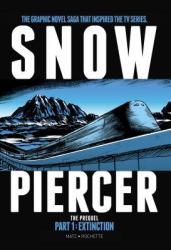
One of the best original sci-fi movies to come out in the last decade, in my opinion, was Snowpiercer (2013). The story originated as a 1982 French graphic novel under the name of Le Transperceneige. While I haven't read the original source material, I decided that a prequel graphic novel was probably pretty safe to read. I figured the events leading up to the world ending and a perpetual train being launched wouldn't spoil anything for me (I also haven't seen the TV show either).
While it's only a scant 90 pages, part 1 of this prequel trilogy, Extinction, had nothing I didn't already know in it. Most of the plotlines in this book were fairly generic end-of-the-world-type stories. Each one obviously would lead to the last of humanity boarding this infinitely running train, which was no surprise. It probably didn't help that there weren't that many distinct characters to latch onto in this book to make it more relatable. I understand that it's laying the groundwork for the next two books, but it almost felt that this part of the prequel series was unnecessary.
Perhaps I'm more inclined to cleaner art in graphic novels I like to read. This book had a rough, almost sketch-like style I found to be unpolished. Maybe that was the feeling the illustrator was going for, but some scenes were hard to parse visually because of how dark and thick the lines were. Granted, I still want to go back and read the original graphic novel to see if the style fits better for the actual post-apocalyptic story. However, for this "real world" setting, the art style feels too heavy even for a pre-apocalypse story.
A somewhat unnecessary story with a heavy visual style, I give Snowpiercer - The Prequel Part 1: Extinction 3.0 stars out of 5.
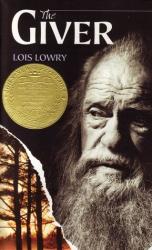
This story follows the main perspective of Jonas. Jonas lives in an alleged utopian society. They feel no pain, see no colors, feel no love, and hear no music. At the age of 12 every child is given an assignment based on their abilities and what they excel in. Jonas was living a perfect life until his cycle was broken. When Jonas turned 12 he was decided to be the receiver of memory, the highest role in the community. Now everything that Jonas once thought was true and right all come crashing down leaving him with a reality of the community that he can no longer stand for.
The giver is an amazing book full of surprising twists and just a spectacular over all plot. Lois Lowry did an excellent job of not only creating a completely fascinating story, but also leaving you wondering once you finish the read. A main theme of the giver could be the significance of memories to all life. The giver is a dystopian novel as the citizens are living in an extremely censored version of life. I did not particularly enjoy some of the more disturbing memories of death and war that Jonas receives but it is important that they are present so that Jonas will make the final decision. The giver is an amazing book that all would enjoy!
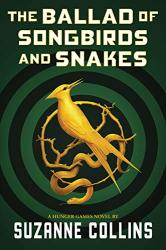
If you have read the Hunger Games series, then you know that President Snow is the main villain and set a iron grip on the Districts of Panem. I you haven't read the trilogy, then might I highly suggest you do.
This book takes place decades before the trilogy starts and we read through Coriolanus Snow's eyes before he becomes the president and monster of Panem. Coriolanus has already set himself up to be in a position of power even as a young adult, and after his city was besieged, and his parents died, the Snow name and fortune left in ruins. Coriolanus Snow has decided that he will never be the weaker side again. The Hunger Games were not a new event for Panem during the time yet they were never popular, now though Coriolanus and his class are each assigned a tribute to make the Games finally noticed. Coriolanus has been assigned the girl of District 12, perhaps the worst choice available, or so he thinks.
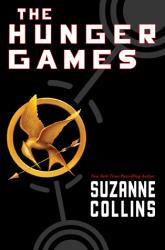
The "Hunger Games" by Suzanne Collins is a suspenseful novel about 16-year-old Katniss in the dystopian land of Panem. In this world, the 13 districts protested against the government. In punishment, they must provide two tributes (one boy and one girl) from each district. When Katniss's sister was chosen as tribute Katniss stepped up to protect her. Now she must fight to the death with the other 23 tributes for a chance to continue with her life.

The Giver by Lois Lowry explores themes of individuality, memory, and conformity in a dystopian society. Set in a world where pain and suffering have been eliminated, the story follows Jonas, a young boy who is chosen to become the Receiver of Memory, a role that involves experiencing the past and holding the collective memories of his society. Jonas is a sympathetic and relatable protagonist, with his experiences and struggles serving as a lens through which the reader can explore the world of the novel. The plot of The Giver is very compelling- Lowry’s exploration of memory and its role in shaping identity is particularly well-done, with her depiction of the ways in which the absence of memory can lead to conformity and complacency providing a powerful critique of authoritarian societies. The climax of the novel is both suspenseful and poignant, with Jonas’ actions serving as a powerful statement about the importance of individuality and freedom. Additionally, Lowry’s writing style is both elegant and understated, perfectly capturing the voice of a young boy struggling to make sense of the world around him. To me, The Giver was a fantastic book because of how much it made me think and consider the world around me, and because of how intriguing the contrast between Jonas's dystopian society and the view into the past was. I would highly recommend this book to any and all dystopian lovers.
Reviewer Grade: 11.
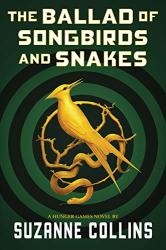
The Hunger Games: The Ballad of Songbirds and Snakes by Suzanne Collins is a masterful prequel to the wildly popular Hunger Games trilogy. Set 64 years before the events of the first book, The Ballad of Songbirds and Snakes explores the origins of the Hunger Games and the rise of the villainous President Snow. The main character, Coriolanus Snow, is a fascinating and nuanced character, with his motives and actions constantly shifting throughout the novel. His relationship with his fellow tribute, District 12's Lucy Gray Baird, is particularly compelling, with Collins exploring themes of loyalty, trust, and love in a way that is both nuanced and emotionally resonant. The plot of The Ballad of Songbirds and Snakes is both gripping and thought-provoking. Collins deftly weaves together political intrigue, personal drama, and action-packed set pieces to create a narrative that is both thrilling and emotionally engaging. The Hunger Games themselves are particularly well-done, with Collins using them as a vehicle to explore the darker side of human nature and the impact of power and privilege on individuals and society. Collins's descriptions of the Capitol and the districts are vivid and immersive, offering a richly detailed portrait of the world of Panem. Her use of foreshadowing and symbolism, such as the mockingjay, adds depth and meaning to the story, inviting readers to reflect on the deeper themes of the novel. This book was a stellar prequel to the Hunger Games trilogy that adds a lot of perspective and background to the original story. I would highly recommend this book to anyone who enjoyed the original novels and wishes to explore more of the Hunger Games world. Reviewer Grade: 11.

Fahrenheit 451 by Ray Bradbury delves into the dangers of a society where books are banned and critical thinking is discouraged. The novel follows protagonist Guy Montag, a fireman whose job is to burn books, as he begins to question the oppressive society he lives in and seeks to uncover the truth about the value of literature. The plot of Fahrenheit 451 is both compelling and thought-provoking- Bradbury’s dystopian world is entirely possible, and his exploration of the consequences of censorship and intellectual suppression can be easily applied to modern times. The story is driven by Montag’s journey of self-discovery, which is filled with twists and turns that keep the reader engaged until the very end. Bradbury’s writing style is poetic and evocative, bringing the world of Fahrenheit 451 to life with vivid descriptions and metaphorical language. His use of symbolism is particularly effective, as he weaves in recurring motifs such as fire, the mechanical hound, and the phoenix to add depth and complexity to the story. The novel is also structured in a way that mirrors Montag’s journey, with the pace and tone shifting as he becomes more aware of the world around him. Overall, Fahrenheit 451 is a very thought-provoking and symbolic classic that really makes you rethink the value of intellectual freedom and education. Every time I read it, I recognize more symbols, hidden meanings, and references that really enrich my experience. I enjoyed this book very much and would recommend it to anyone interested in dystopian, mind boggling novels.
Reviewer Grade: 11.
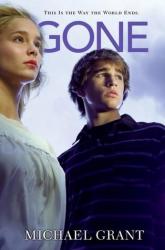
Gone, written by Michael Grant, is an action-packed dystopian novel that explores the struggle for survival in a world where all adults have vanished. The story takes place in a small California town, where everyone over the age of 15 has disappeared, leaving the children and teenagers to fend for themselves. The protagonist, Sam, is a relatable and sympathetic character who is thrust into a leadership role as he tries to keep the remaining kids safe and find out what has happened to their families. The world-building in Gone is impressive, with the small town and surrounding wilderness being vividly realized and full of danger. The supernatural elements of the story, such as the strange powers that some of the children possess, add an extra layer of intrigue and mystery to the plot that I very much enjoyed. Additionally, the novel explores a number of themes including moral and power struggles that the characters must face head on, and the shifting of the narration between several characters allows for some really good insight into how the characters' fight for survival has affected them each. Overall, Gone is a well-written and engaging novel that is sure to appeal to fans of dystopian and action-packed stories, and leaves off on a cliffhanger that encourages readers to read the remaining eight novels in the series. I personally enjoyed the plot and its many twists very much, and have read the rest of the series as a result. Reviewer Grade: 11.
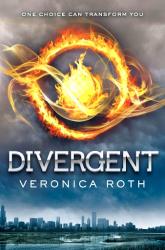
Divergent is a book that really drew me in as I was reading. The story starts from Beatrice Prior’s (also known as Tris) point of view. Within the world that she lives in, there are five factions. These factions being dauntless, candor, erudite, abnegation, and amity. Tris ends up choosing to go into the dauntless (the fearless) faction. Among being placed into the dauntless faction, Tris Prior meets Four. Four and Tris “hit it off” after seeing each other and the fall in love quickly. The two have different personalities which seems to click. The novel follows Beatrice and Four as they laugh, love, keep secrets, butt heads, and much much more.
I really like the variety in genres of this book. The book does have romance, humor, fantasy, but it also has action and mysterious elements to it. The short chapters make this book really good at keep the reader’s attention span. The scenes described in vivid detail allow you to feel like part of the story and envision it in your mind. This book is the first of three books. The three books were turned into movies and the first one being Divergent. If you’re looking for a read that is compelling enough to keep your attention span, have a little of every genre, and describes scenes in extreme detail, this book is for you!
Reviewer Grade: 8
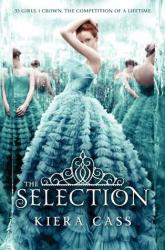
The Selection was a very fun book for me to read, because it was a quick read fantasy book. It incorporates all the elements a romance lover looks for in a book. It is a love triangle, enemies to lovers, and friends to lovers novel all in one. America is a very strong and independent character, but we see her become more open minded and willing to work with others instead of fighting them. It is cool to see her perspective on the life she wants change as she gets to know Maxon, but she never forgets the change she wants to make for the people of her past life. The book was not my all time favorite, because the plot can be a little more predictable at times, and some parts are slower. Although, it is definitely worth reading.
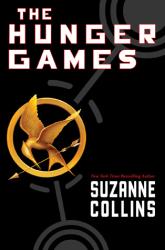
I loved this series! As a big sister, I was hooked the moment Katniss said "I volunteer!" It is a great read about hardship and rebellion. How one person can make a big difference even without intent. I have read it with my oldest and will read it with my youngest at some point. But this is the book that got me reading again and I love to read it over and over.
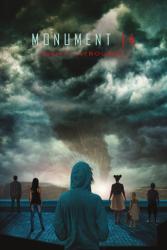
This book is the perfect example of a great concept with poor execution. It is about a bunch of kids trapped in a grocery store amid an apocalypse, and trust me, it isn’t as good as it sounds. First of all, the worst thing in this book was the handling of 13 year old Sahalia, at least in the beginning. Her character in itself was creepy and unnecessary. Under no circumstances should a character who is only my age be described like that. She was handled well in the very end, but that’s about it. Besides that glaring issue, the rest of the book is flat at best. I will definitely not finish this series. (8th grade)
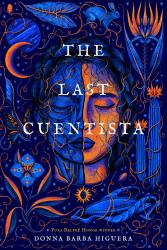
Donna Barba Higuera takes on a futuristic dystopian space adventure in her story The Last Cuentista. A young, curious girl named Petra lives in a distant timeline on Earth, where scientists are helplessly searching for a way to avoid certain doom. While in the face of death, Preta leans on her abuelita’s stories, which are rich and full of life. Yet, as the clock starts ticking and Petra is forced to leave it all behind, the one thing she keeps with her is the power of tales. The Last Cuentista is a brilliantly written novel depicting a world in space, where the connection and true heart of human-kind is severed. Petra shows the reader what true perseverance is, and reminds us all of what it means to truly be human.
(Reviewer Grade: 12)
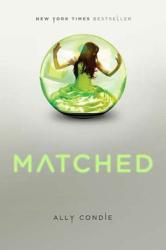
This is a wonderful, amazing, trilling book! I love the descriptive language and the way its laid out, you never want to stop reading it. it makes you want more. if you read this book, which you should, you need to read the other books as well. It’s a thought-provoking, engaging dystopian novel with the stereotypical love triangle at the center. Condie does a good job setting the scene and the overall vibe. However, I was very disappointed when Cassia burned her grandfather's poems. If she doesn't have the courage to keep a piece of paper, that has been in her family for generations, how will she have the strength to do anything? This is a great book, the characters are developed well and the story is intriguing. (Spoiler) The only thing I would change is Xander at the end, where he lets Cassia go. I know that he is understanding and all, but I think it would be more appropriate for him to want Cassia to stay with him forever, and ever since the pill incident with Ky, he'd like to follow the rules. I really like the storyline and the fact that Cassia is different and doesn’t fit into what people expect of her. Also, I think she used too much show not tell as I don’t see why Cassia likes Ky or how on earth Xander would be a perfect match. I feel like she left the important bits out and kept what wasn’t interesting Other than the few complaints I have, Matched is a book that I would recommend to any Romance or Dystopian fans.
Reviewer's Grade: 8
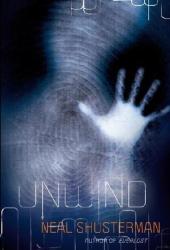
Unwind has a fresh, fascinating, and frankly genius premise: after a war is fought on abortion, the U.S. government passes legislature allowing parents to sign an order to "unwind" their teenagers. The teen is then taken apart, and each body part is used for transplants. Like any good dystopia, the concept poses a number of thought-provoking questions that the book tries to address, like "do we have souls?" or "what makes a person themself?" or "how scary is it to be unwound, really?", and it answers them with varying degrees of success. Unwind is an excellent conversation starter; it is riddled with nuanced philosophical ideas which are, at times, uniquely terrifying. However, that's where the problems with Unwind lie: the intrigue doesn't stretch much farther than the initial concepts. Shusterman is talented at worldbuilding, and every new detail of Unwind's dystopia is interesting, inspired, absurd, and simultaneously realistic. Unfortunately, the story fails to make use of this inherent intrigue. Much of the reader's time is spent spectating characters as they shuttle from one location to another. They have minimal development, or, when they do have development, it is sudden and drastic. Shusterman builds a vivid universe only to guide readers through the dullest corners. Unwind is worth a read for the conversation, not the story. If a reader expects the average teenage dystopia, they should pick another book; but if they want fresh perspectives, creative horror, and possibly a hint of existential dread, Unwind is the perfect read.
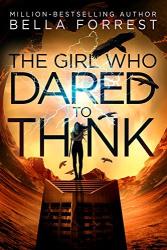
The first book in this dystopian series, The Girl Who Dared To Think takes readers on an adventure to a post apocalyptic world where one girl struggles to fit in. Liana Castell has never fit in with her parents or instructors expectations. Living in the Tower, a large glass home for all those left, requires citizens to wear a band displaying a ranking. The most loyal to the tower receive number close to a 10, while those at 3 or lower receive treatment and many disappear. When Liana meets a man who has a ranking of a ten, though obviously is not deserving of it, she fights to find him and uncover the deep secrets of the Tower.
The book will keep you guessing the whole way through and leave you wanting to read the next.
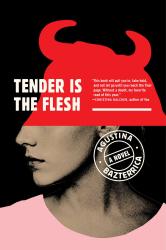
The book is about a world where a virus made all animals poisonous of people so the world turns to cannibalism to survive. The main character is Marcos who works in a meat processing plant to ensure his family is taken care off. It describes this daily work, slowly building how the world adapted. He's given a gift of live meat. Marcos seemed to look down and seemed to be the only one who saw something wrong with this. However a the end of the book the last few pages changed everything you know about Marcos, you see him in a different light. It feels like it came out of nowhere but, slowly looking through you see it building up.
The book is hard to put down and it explores the darker side of humans abilities to adapt. It makes you think and leaves you wondering about the world that Marcos built for himself afterwards.
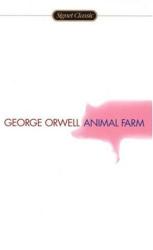
An attempt to create an independent sovereign state, liquidate domestic and foreign enemies and get rid of vestiges of the past, made by… animals. The only fact of animals ruling and managing their own lives sounds absurd enough, but what if under the masks of pigs, horses and dogs real historical figures are hiding?
George Orwell showed brightly the allegorical reality of totalitarianism and communism in his novel Animal Farm. A fairy tale for grown up readers, the book offers an opportunity to observe the story of animals who tried to get independence from their owner and build a society where everyone’s needs and desires would be equally satisfied (sounds a little utopical, doesn’t it?)
Inspired by the Old Major, two pigs, Napoleon and Snowball, supported by all the residents of the farm, carry out a coup d’etat and banish the farmer Mr. Jones. They take the lead and create the laws of the newly created state, the most important of which is “All animals are equal”. However, as the time flows, it turns out that ruling a society is not as easy as it seems to be, especially if at the same time you are trying to benefit from the power that you possess. The animals have to go through propaganda, repressions, socialist competition, ideological pressure and several other social and political changes. Most of them believe their government blindly, and only a few trust their own eyes more than the media. Napoleon, now the only ruler of Animal Farm, discovers that fear and lies are not the worst tools to use, if you want to keep a state in order, especially when the majority of the population consists of sheeps. He goes father and father from where he began and, like many leaders before and after him, becomes a tyrant trying to keep his position and privileges. At the end, he brings the animals back to what they tried to destroy: a totalitarian system where one stands above everyone else. “All animals are equal, but some animals are more equal than others”, the new Commandment says.
The book is written in a simple language and the allegory and similes make the story easy to understand even for the younger readers. All the processes and events mentioned in the novel repeat one of the darkest and most tangled periods of history. But, shown on the example of animals, they make the readers wonder how people, who faced them in real life, could not notice that they were being trapped and fooled.
Compared to some other novels by George Orwell, Animal Farm is pretty easy to read. It would be a perfect choice for those who want to get a better understanding of political and historical processes and enjoy a fictional story at the same time.
Reviewer Grade: 11
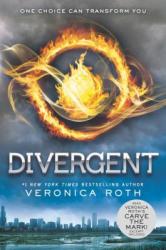
War and Hatred flood the world, leaving the USA broken, but through the ashes hope arises when a group of scientist forge a city experiment that will one day restore humanity. They re-build Chicago: however, they change the way the new civilization will see the world. The citizens of Chicago are divided into five different groups: Erudite (The intelligent), Amity (the peaceful), Abnegation (the selfless), Dauntless (the brave), and Candor (the honest). At the age of 16, teens take an aptitude test to determine which faction they belong in. Two decades after this city is born, the story begins with the life of Tris Prior. When taking the aptitude test, Tris discovers that she is divergent. A divergent individual is someone who is aware during simulations because of their genes. The story follows her life as she discovers love, sacrifice, and heartbreak.
This is a great story for anyone who loves romance and is fine with some gore. I chose to read this book because it was one of my mom's favorites and she thought that I would enjoy it.
Divergent teaches the reader that in order to see clearly one must not only focus on one singular flaw in a community, they must look at the body as a whole not just looking at one arm or one leg. Event though this is a great story, most problems are solved with violence, and this may affect some readers in a negative manner.